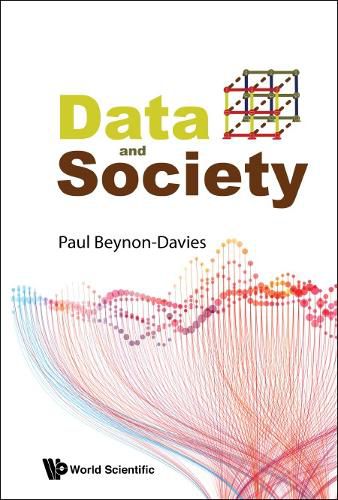Readings Newsletter
Become a Readings Member to make your shopping experience even easier.
Sign in or sign up for free!
You’re not far away from qualifying for FREE standard shipping within Australia
You’ve qualified for FREE standard shipping within Australia
The cart is loading…






This title is printed to order. This book may have been self-published. If so, we cannot guarantee the quality of the content. In the main most books will have gone through the editing process however some may not. We therefore suggest that you be aware of this before ordering this book. If in doubt check either the author or publisher’s details as we are unable to accept any returns unless they are faulty. Please contact us if you have any questions.
Most literature thinks of the relationship between data and society as additive, meaning that data and society are seen as two separate sets of things but which overlap to form an intersection. The literature then goes off to unpack the intersection of the two circles and partners the term data in this manner with terms descriptive of the domain of society - ownership, control, surveillance, and privacy, to name but a few.Within this book, we want to promote an alternative viewpoint of the relationship between data and society. Rather than explaining how data fits with or contributes to some burning societal issues, we want to explain how data is constitutive of many such issues. The term constitutive is used here in the sense of data having power to institute, establish, or enact society.Our viewpoint means that if you are to properly understand the constitutive nature of data, you must start from first principles and closely examine the nature of data itself. You must also focus on the mechanics of data - how data is represented and articulated in records or more generally in data structures.Our aim in doing this is to examine the place of data structures across cultures and societies. In doing so, we hope to better understand why we, as humans, make records. In doing this, we can also better understand some of the unintended consequences of the use of records, which particularly plague us in the modern world.
$9.00 standard shipping within Australia
FREE standard shipping within Australia for orders over $100.00
Express & International shipping calculated at checkout
This title is printed to order. This book may have been self-published. If so, we cannot guarantee the quality of the content. In the main most books will have gone through the editing process however some may not. We therefore suggest that you be aware of this before ordering this book. If in doubt check either the author or publisher’s details as we are unable to accept any returns unless they are faulty. Please contact us if you have any questions.
Most literature thinks of the relationship between data and society as additive, meaning that data and society are seen as two separate sets of things but which overlap to form an intersection. The literature then goes off to unpack the intersection of the two circles and partners the term data in this manner with terms descriptive of the domain of society - ownership, control, surveillance, and privacy, to name but a few.Within this book, we want to promote an alternative viewpoint of the relationship between data and society. Rather than explaining how data fits with or contributes to some burning societal issues, we want to explain how data is constitutive of many such issues. The term constitutive is used here in the sense of data having power to institute, establish, or enact society.Our viewpoint means that if you are to properly understand the constitutive nature of data, you must start from first principles and closely examine the nature of data itself. You must also focus on the mechanics of data - how data is represented and articulated in records or more generally in data structures.Our aim in doing this is to examine the place of data structures across cultures and societies. In doing so, we hope to better understand why we, as humans, make records. In doing this, we can also better understand some of the unintended consequences of the use of records, which particularly plague us in the modern world.